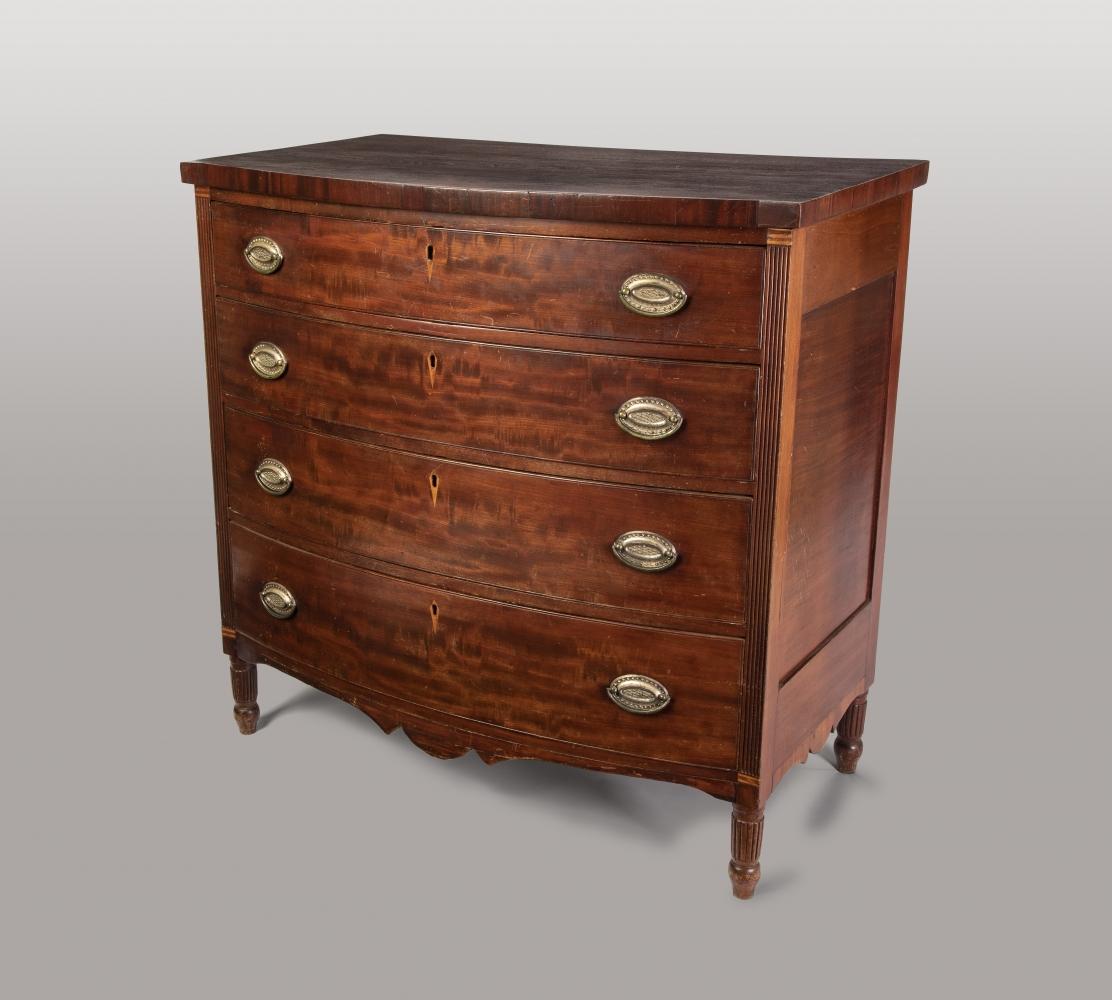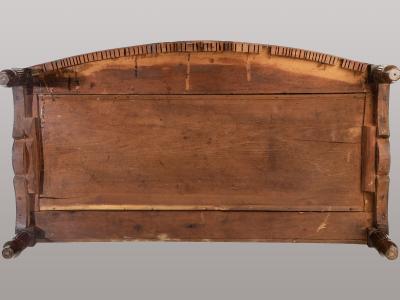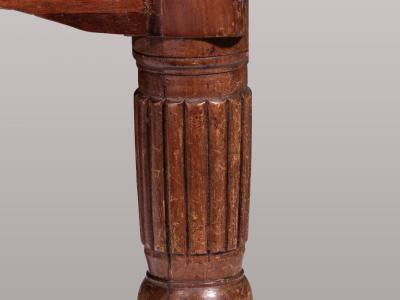Chest of four drawers
Smyrna or Dover, Delaware
1810-1820
Maker
Probably James McDowell Sr. (working c. 1785–1836) or Thomas Stevenson (1787–1865) shops
Measurements
38 in x 39-1/8 in x 23 in
Materials
Mahogany; maple, walnut, and cherry banding; white pine (laminated drawer fronts, drawer sides, drawer blades), white cedar (drawer bottoms), sweet gum (also called red gum, drawer backs, top drawer fit-out, backboards), hard pine (drawer runners).
Credit Line
Historic Odessa Foundation
Accession Number
2011.194
Inscription
“Bought this chest. Belonged to Mr. McIlvaine’s grandparents, Mr. & Mrs. Davidson.”; “William Draper Jr.”; and “Fred Prown[?] bought the other chest which was a Chippendale with fluted corners.” are written in pencil on a printed auction notice of December 15, 1951, in Magnolia, Delaware, for the Esther T. Marvel estate, which is pasted onto the inside center of the top rear backboard.
Condition Notes
Some crossbanding on the top edge is a replacement. Repairs have been made to the drawer dividers above the locks on three of the four drawers. The original brasses have lost some of their original silvering.
Provenance
An inscription on the 1951 printed auction notice of the Esther T. Marvel (1864–1951) estate pasted inside the chest declares that the chest was owned by her parents, James H. (1821–1897) and Margaret L. Richards Davidson (1829–1891).1 Estate administrator J. Ralph McIlvaine (1893–1969) was Esther’s nephew. All lived in Magnolia, Delaware, about twenty miles southeast of Smyrna. The purchaser of the chest at auction was William H. Draper Jr. (1930–2008) of Dover.
Comments
This bowfront chest of four graduated drawers can be associated with the shop of James McDowell Sr. and Thomas Stevenson of Smyrna and later Dover, Delaware, based on distinctive inlays. Inlaid banding above and below the reeded pilasters flanking the drawer fronts is similar to that on the documented chest (acc. no. 1974.56) and other examples from that shop, but not to other furniture from the Mid-Atlantic Region. However, several construction features, notably the vertically laminated legs and laboriously shaped skirt and blocking, suggest the maker was probably not McDowell or Stevenson but someone they trained. Of note on this chest, the original brasses retain part of the silvering that covered them when new.
Bibliography
Zimmerman, A Storied Past, pp. 146-147.



